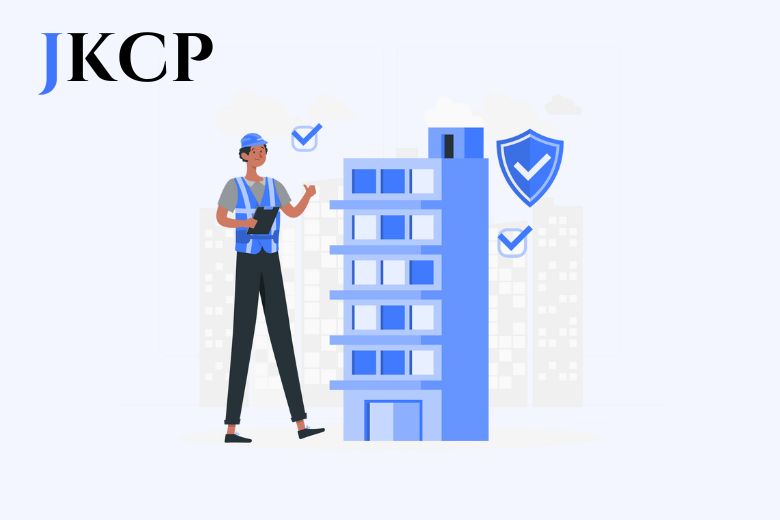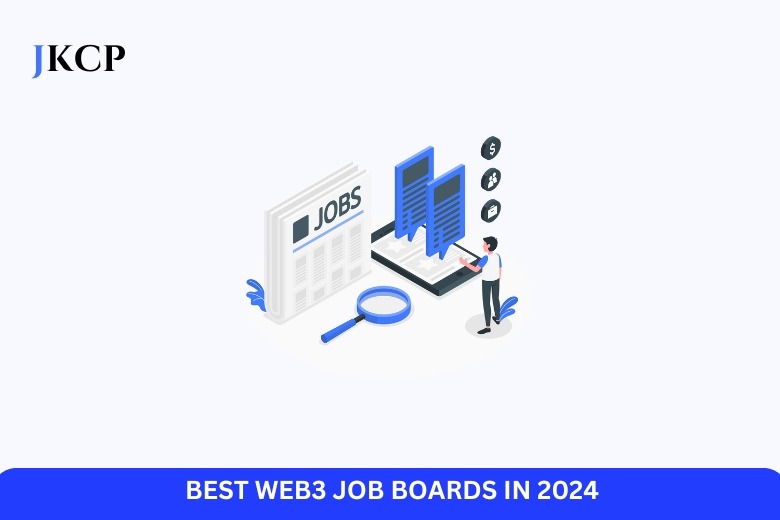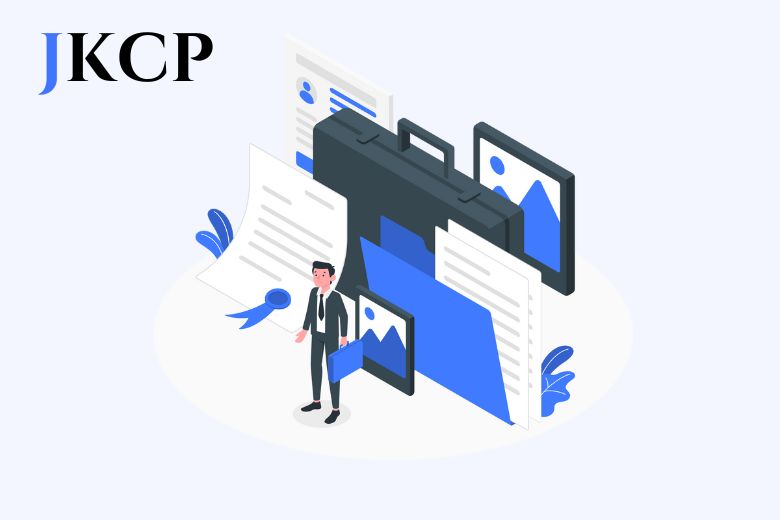Must-Have Hard and Soft Skills for Blockchain Developers in 2025
Blockchain development is one of the most exciting and taking off fields today, and 2025 promises to be another big year for tech innovation. Whether you’re building decentralized applications (dApps), exploring smart contracts, or diving deep into cryptocurrencies, blockchain developers are essential to making this technology a reality. But to stand out, you need more than just coding skills. In this article, we’ll dive into the top hard and soft skills every blockchain developer needs in 2025 to stay ahead of the curve and secure their place in this booming industry.
The Blockchain Boom in 2025
Blockchain isn’t just about cryptocurrencies like Bitcoin anymore. Its technology is used across various industries – from supply chains and gaming to healthcare and voting systems. With major companies like Microsoft, Meta, and IBM investing heavily in blockchain projects, the demand for skilled blockchain developers is skyrocketing.
But here’s the thing: the blockchain space is skyrocketing. What was cutting-edge just a year ago could already be outdated, so it’s not just about knowing your stuff; it’s about staying up-to-date with the latest developments. As a blockchain developer, mastering hard and soft skills is essential for making a real impact.
Let’s unveil the must-have skills you need to thrive as a blockchain developer in 2025.
Hard Skills: The Technical Toolbox
You can’t afford to skip these skills if you want to be taken seriously as a blockchain developer. From blockchain platforms to cryptography, let’s dive into the most important hard skills to master.
1. Mastering Blockchain Platforms
Blockchain platforms are the foundation of decentralized applications, and there are a few key players you’ll want to be familiar with:
By learning these platforms, you’ll ensure you’re equipped for nearly any blockchain development job.
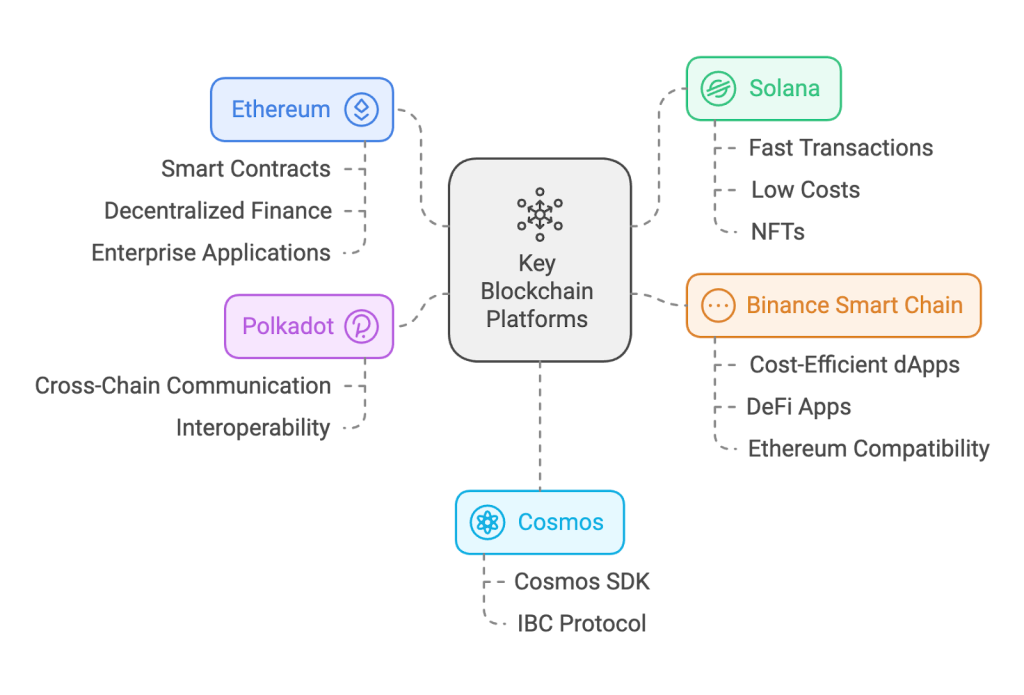
2. Solidity & Smart Contracts: The Backbone of Blockchain Development
Smart contracts are a key innovation that makes the blockchain so powerful. They allow two parties to execute transactions and agreements without needing a middleman. Solidity is the primary language used for writing smart contracts on Ethereum, so if you’re working with Ethereum, learning Solidity is essential.
But it’s not just about writing smart contracts – it’s about making them secure. You’ve probably heard about high-profile hacks (like the infamous DAO hack on Ethereum), and as a developer, your job is to ensure that doesn’t happen on your watch. Focus on:
Security and efficiency are your priorities for smart contract development, and mastering Solidity is a must to stay relevant.
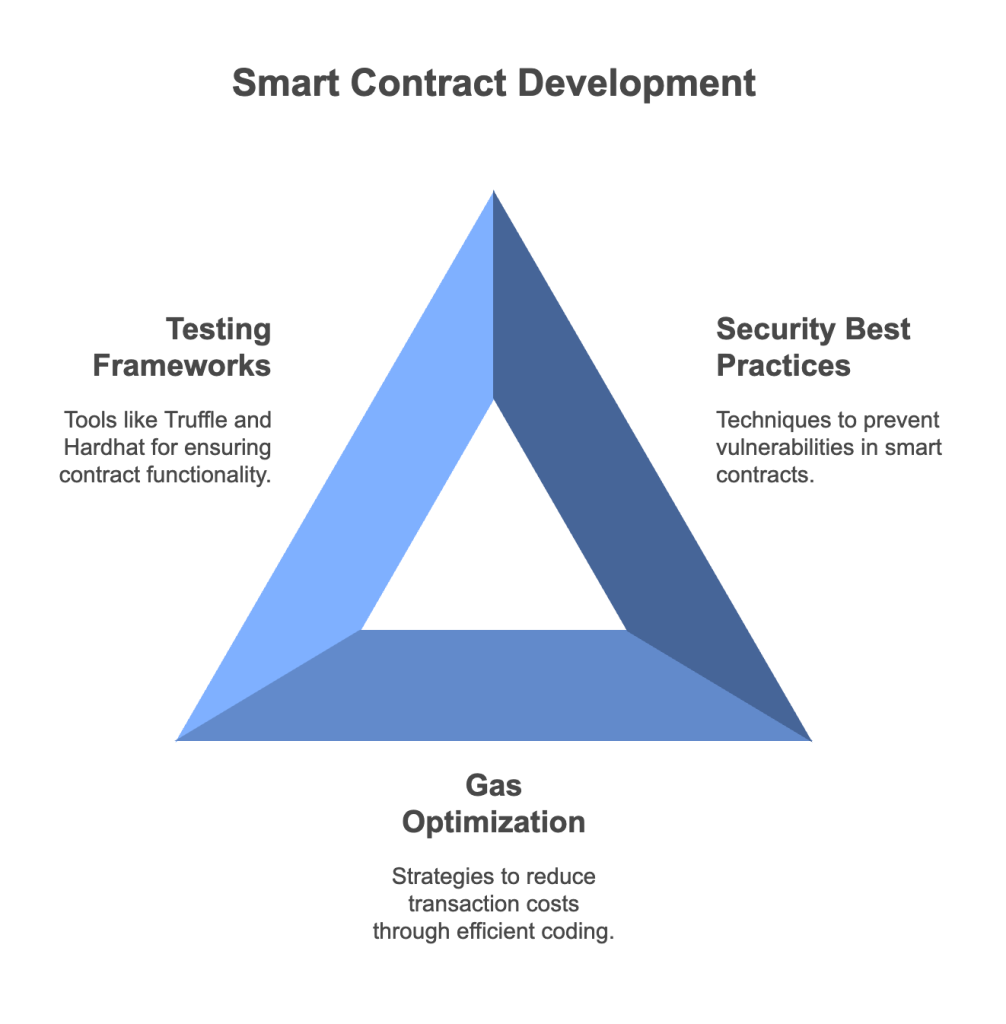
3. Cryptography: Unlocking the Secrets
Blockchain wouldn’t exist without cryptography, and as a blockchain developer, you need to understand the core concepts that power the tech. These include:
- Hashing: Every transaction and piece of data on the blockchain is hashed, which keeps everything secure and unchangeable. Understanding how hashing works is essential for ensuring the integrity of the blockchain.
- Public-key cryptography is how wallets are created and transactions are signed. Understanding how private and public keys work is crucial to securing data and managing blockchain identities.
- Consensus Algorithms: Knowing how blockchain networks agree on the ledger’s state is essential. While Proof of Work (PoW) is what Bitcoin uses, newer algorithms like Proof of Stake (PoS) and Delegated Proof of Stake (DPoS) are becoming increasingly popular. Understanding these algorithms will help you understand how blockchains maintain decentralization.
The more you understand the cryptographic principles behind blockchain, the better you’ll be at developing secure applications.
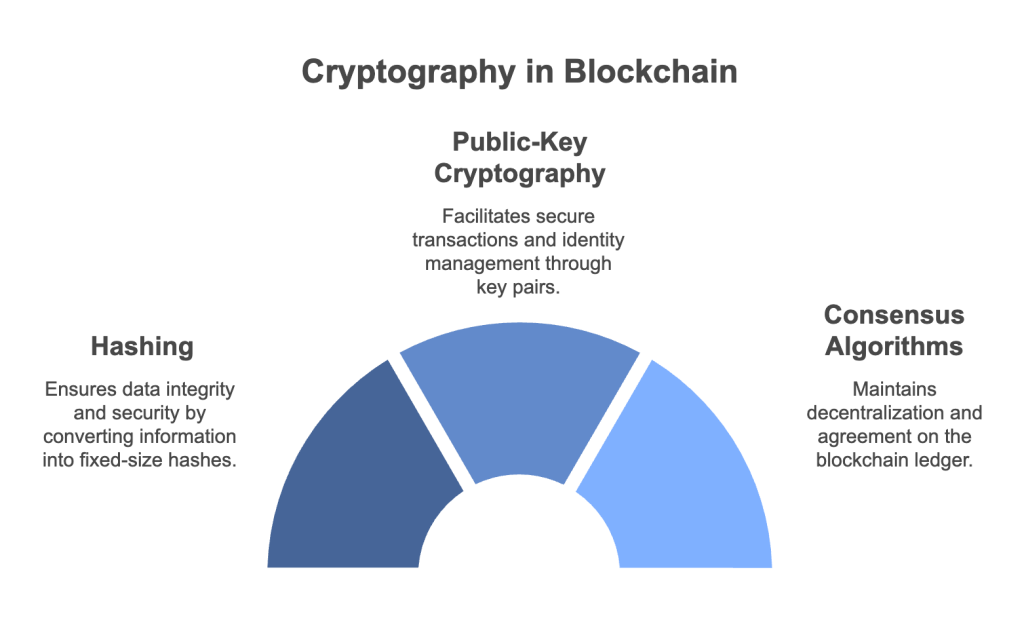
4. Decentralized Applications (dApps)
A blockchain developer isn’t just someone who writes smart contracts; they build fully functional applications on top of those contracts. Building dApps (decentralized applications) means connecting the front end (the user interface) with the blockchain back end (smart contracts). This means knowledge of full-stack development is essential.
A strong grasp of front-end and back-end development is crucial for building fully functioning dApps.
Soft Skills: Beyond Code
Technical skills are critical, but in 2025, soft skills can elevate your career and help you work effectively in today’s fast-paced, collaborative work environment. Here are the soft skills you’ll need to be successful.
1. Problem-Solving and Critical Thinking
Blockchain is still an emerging technology, and numerous challenges exist. Whether it’s scalability, security, or interoperability, blockchain developers need to think outside the box and come up with innovative solutions. In 2025, the best blockchain developers will be those who can analyze problems from different angles and develop creative, effective solutions.
For example, Ethereum 2.0 is a massive upgrade that aims to solve Ethereum’s scalability problems. The entire blockchain community has had to think critically about how to transition to Proof of Stake, and those developers who contributed to the solution were able to see the bigger picture.
2. Communication and Teamwork
Blockchain development doesn’t happen in a vacuum. Developers need to communicate with product managers, designers, legal teams, and even marketers to ensure the blockchain project is aligned with business objectives. In 2025, blockchain developers will need to work in multidisciplinary teams, often with people who don’t have a deep technical understanding of blockchain.
Explaining complex technical concepts in a simple, clear way is a huge asset, and strong communication will help you collaborate effectively with stakeholders.
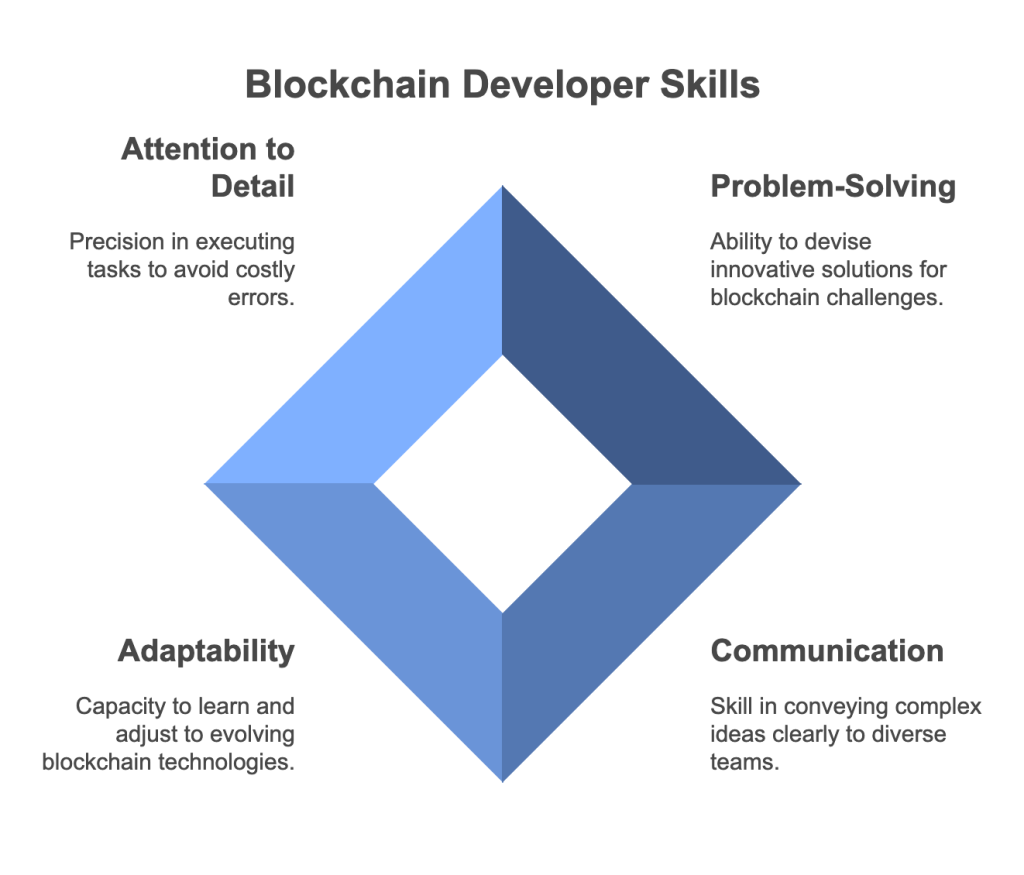
3. Adaptability and Continuous Learning
Blockchain is constantly evolving, and so should you. From new platforms and frameworks to emerging technologies like NFTs and metaverse development, blockchain is a space where change is constant. To keep up, you need to be adaptable and dedicated to learning. Taking online courses, attending meetups, reading blogs, and participating in developer communities will keep your skills sharp.
4. Attention to Detail
In blockchain development, small mistakes can lead to big consequences, especially when working with smart contracts or cryptographic functions. Focusing on the small details – like ensuring the right parameters are used or checking the logic of a contract – is crucial for avoiding costly errors.
Wrapping Up
Blockchain development is an exciting career with endless opportunities, but in 2025, it’s about more than just knowing how to write code. The finest blockchain developers combine strong technical skills – like blockchain platform knowledge, Solidity, and cryptography – with essential soft skills like problem-solving, communication, and adaptability. By focusing on both your hard and soft skills, you’ll be well-equipped to navigate the ever-evolving blockchain landscape and make a lasting impact in this dynamic field.


